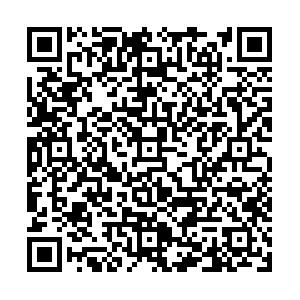Study on correlation between research ability and research self-efficacy of medical academic masters
-
摘要:
目的 了解医学学术型硕士研究生的科研能力与科研自我效能感现状,探讨二者的关系及科研能力影响因素。 方法 采用整群抽样法,应用学术型硕士研究生科研能力调查问卷及科研自我效能感调查问卷对蚌埠医学院2017~2019级学术型硕士研究生进行调查。 结果 蚌埠医学院学术型硕士研究生的科研能力得分为(3.00±0.60)分,科研自我效能感得分为(3.25±0.61)分。不同年级、学科、婚姻状态、生源地、科研兴趣、参加校内讲座频率、参加学术会议次数(包括交流)以及有无科研经历、是否参与导师课题的研究生,其科研能力与科研自我效能感得分差异均有统计学意义(均P < 0.05)。科研能力得分与科研自我效能感总分及其各维度得分均呈显著正相关(均P < 0.01)。年级、是否参与导师课题、科研兴趣、问题形成效能和结果呈现效能对科研能力的影响差异均有统计学意义(均P < 0.05)。 结论 医学学术型硕士研究生科研能力与科研自我效能感水平一般,科研自我效能感对科研能力有显著影响,高校教育工作者可通过针对性地提高医学学术型硕士研究生的科研自我效能感,来促进其科研能力的提升。 -
关键词:
- 医学学术型硕士研究生 /
- 科研自我效能感 /
- 科研能力
Abstract:Objective To understand the current situation of research ability and research self-efficacy of medical academic masters, and to discuss the relationship between them and the influencing factors of research ability. Methods Cluster sampling method was adopted to select academic masters of Bengbu Medical College from 2017 to 2019 for investigation, and the questionnaire of academic masters' research ability and research self-efficacy were applied for data collection. Results The scores of research ability and research self-efficacy of academic masters in Bengbu Medical College were (3.00±0.60) and (3.25±0.61) respectively. The scores of research ability and self-efficacy were statistically significant for the masters of different grades, disciplines, marital status, place of birth, research interest, frequency of attending on-campus lectures, number of academic meetings (including exchanges), research experience and supervisor's project participation (P < 0.05). The scores of research ability were significantly positively correlated with the total score and all dimensions scores of research self-efficacy (P < 0.01). Grade, participation in supervisor's project, research interest, problem formation and result presentation had a significant impact on research ability (P < 0.05). Conclusion The research ability and the research self-efficacy level of medical academic masters are general. The research self-efficacy has a significant influence on the research ability. Therefore, college educators should take effective measures to improve the research self-efficacy of medical academic masters to promote their research ability. -
Key words:
- Medical academic masters /
- Research self-efficacy /
- Research ability
-
表 1 不同特征医学学术型硕士研究生科研能力与科研自我效能感得分比较(n=359)
项目 类别 人数
[人(%)]科研能力得分
(x±s,分)统计量 P值 科研自我效能感
得分(x±s,分)统计量 P值 性别 男性 136(37.88) 3.00±0.66 -0.130a 0.896 3.27±0.63 0.433a 0.665 女性 223(62.12) 3.00±0.56 3.24±0.59 年级 研一 168(46.80) 2.78±0.56 29.112b < 0.001 3.06±0.56 21.000b < 0.001 研二 87(24.23) 3.07±0.58 3.30±0.65 研三 104(28.97) 3.30±0.53 3.52±0.53 学科 基础医学 39(10.86) 3.19±0.40 5.616b < 0.001 3.45±0.51 6.576b < 0.001 药学 35(9.75) 3.23±0.41 3.50±0.51 医学技术 17(4.74) 3.18±0.44 3.49±0.56 护理学 47(13.09) 3.15±0.44 3.41±0.41 生物学 16(4.46) 3.19±0.61 3.40±0.56 临床医学 205(57.10) 2.86±0.66 3.10±0.64 婚姻状态 未婚 316(88.02) 2.97±0.59 -3.010a 0.003 3.22±0.60 -2.487a 0.013 已婚 43(11.98) 3.26±0.61 3.46±0.58 生源地 城镇 127(35.38) 3.11±0.53 2.605a 0.010 3.35±0.56 2.480a 0.014 农村 232(64.62) 2.94±0.63 3.19±0.62 科研经历 有 46(12.81) 3.27±0.51 3.332a 0.001 3.55±0.62 3.658a < 0.001 无 313(87.19) 2.96±0.60 3.20±0.59 参与导师课题 是 211(58.77) 3.15±0.57 6.053a < 0.001 3.39±0.58 5.474a < 0.001 否 148(41.23) 2.78±0.58 3.05±0.59 参加校内讲座 5次以下/年 278(77.44) 2.93±0.60 9.707b < 0.001 3.18±0.59 9.530b < 0.001 5~8次/年 50(13.93) 3.22±0.50 3.45±0.50 8次以上/年 31(8.64) 3.31±0.61 3.57±0.70 参加学术会议(包括交流) 5次以下 249(69.36) 2.91±0.59 11.735b < 0.001 3.17±0.61 10.749b < 0.001 5~8次 68(18.94) 3.17±0.57 3.31±0.54 8次以上 42(11.70) 3.30±0.57 3.61±0.56 科研兴趣 浓厚 87(24.23) 3.32±0.60 24.647b < 0.001 3.61±0.55 32.616b < 0.001 一般 240(66.85) 2.94±0.53 3.17±0.52 无兴趣 32(8.91) 2.57±0.68 2.65±0.96 注:a为t值,b为F值。 表 2 医学学术型硕士研究生科研能力与科研自我效能感的相关性(r值)
项目 科研能力 科研计划能力 科研实施能力 科研总结能力 科研自我效能感 0.782 0.724 0.766 0.700 设想产生环节 0.695 0.648 0.684 0.605 问题形成环节 0.748 0.710 0.717 0.673 科研实施环节 0.735 0.670 0.727 0.660 结果呈现环节 0.759 0.699 0.742 0.691 注:均P < 0.01。 表 3 自变量赋值情况
变量 赋值方法 年级 哑1:研二为1,否则为0;研三为1,否则为0 学科 哑1:基础医学为1,否则为0;哑2:药学为1,否则为0;哑3:医学技术为1,否则为0;哑4:护理学为1,否则为0;哑5:生物学为1,否则为0 婚姻状态 未婚=0,已婚=1 生源地 农村=0,城镇=1 科研经历 无=0,有=1 参与导师课题 否=0,是=1 参加校内讲座 哑1:5~8次/年为1,否则为0;哑2:8次以上/年为1,否则为0 参加学术会议(包括交流) 实际数值 科研兴趣 哑1:一般为1,否则为0;哑2:浓厚为1,否则为0 表 4 医学学术型硕士研究生科研能力影响因素的逐步多元回归分析
项目 B SE β t值 P值 常数项 0.697 0.105 6.629 < 0.001 年级(研二) 0.113 0.049 0.081 2.307 0.022 年级(研三) 0.164 0.050 0.124 3.298 0.001 参与导师课题(是) 0.098 0.041 0.081 2.392 0.017 科研兴趣(浓厚) 0.099 0.048 0.071 2.054 0.041 问题形成环节 0.292 0.055 0.324 5.274 < 0.001 结果呈现环节 0.371 0.056 0.404 6.629 < 0.001 注:F=104.349,P < 0.001,R2=0.640,调整R2=0.634。 -
[1] 梁锦涵. 导师与研究生科研能力的关系研究[D]. 青岛: 青岛大学, 2016. [2] 陈晓云, 高润国, 吴洪涛, 等. 临床医学研究生科研能力现状、认知与需求[J]. 中国成人教育, 2015(20): 110-113. https://www.cnki.com.cn/Article/CJFDTOTAL-ZCRY201520041.htm [3] 单亦亮. 学术型硕士研究生科研能力现状及其影响因素的研究[D]. 上海: 华东师范大学, 2017. [4] 潘炳如. 研究生培养方案对科研能力的影响研究——基于全国20所高校的实证分析[D]. 南宁: 广西大学, 2019. [5] LIU C, WANG L, QI R, et al. Prevalence and associated factors of depression and anxiety among doctoral students: the mediating effect of mentoring relationships on the association between research self-efficacy and depression/anxiety[J]. Psychol Res Behav Manag, 2019, 12: 195-208. doi: 10.2147/PRBM.S195131 [6] 姚添涵, 余传鹏. 导师-同门支持、科研自我效能感与研究生科研创造力的关系研究[J]. 高教探索, 2019(4): 46-53. doi: 10.3969/j.issn.1673-9760.2019.04.009 [7] 王银芳, 段建华. 自我效能干预在慢性胃炎患者护理中的应用效果[J]. 中华全科医学, 2020, 18(5): 867-870. https://www.cnki.com.cn/Article/CJFDTOTAL-SYQY202005045.htm [8] TIYURI A, SABERI B, MIRI M, et al. Research self-efficacy and its relationship with academic performance in postgraduate students of Tehran University of Medical Sciences in 2016[J]. J Educ Health Promot, 2018, 7(1): 11. doi: 10.4103/jehp.jehp_43_17 [9] HEMMINGS B, KAY R. The relationship between research self-efficacy, research disposition and publication output[J]. Educ Psychol, 2016, 36(2): 347-361. doi: 10.1080/01443410.2015.1025704 [10] 孙行臻. 科研自我效能感对学术型硕士科研绩效的影响——基于H大学的实证分析[D]. 广州: 华南理工大学, 2018. [11] 杨洋. 科研训练环境对研究生科研自我效能感的影响——基于武汉八所高校的实证分析[D]. 武汉: 华中师范大学, 2017. [12] 杨成明. 职业技术教育学硕士研究生科研能力的结构特征、发展现状及影响因素[J]. 职业技术教育, 2018, 39(19): 24-29. https://www.cnki.com.cn/Article/CJFDTOTAL-ZYJW201819006.htm [13] 朱冰清. 硕士研究生科研自我效能及影响因素研究[D]. 南京: 南京大学, 2017. [14] ASHRAFI-RIZI H, NAJAFI N S, KAZEMPOUR Z, et al. Research self-efficacy among students of Isfahan University of Medical Sciences[J]. J Educ Health Promot, 2015, 4(1): 26. doi: 10.4103/2277-9531.154117 [15] 曾冬梅, 潘炳如. 研究生协同培养对科研能力的影响[J]. 中国高校科技, 2019(3): 45-48. https://www.cnki.com.cn/Article/CJFDTOTAL-ZGKC201903012.htm [16] 阮晓婷, 谷莉娟, 李益兴, 等. 中医院校护理本科生科研能力与创新效能的相关性研究[J]. 护理研究, 2017, 31(27): 3370-3373. https://www.cnki.com.cn/Article/CJFDTOTAL-SXHZ201727007.htm [17] POH R, ABDULLAH K, BIN A G. Factors influencing students' research self-efficacy: a case study of university students in Malaysia[J]. Eurasian Journal of Educational Research, 2019, 82(8): 137-168. [18] 苑红. 科研能力对护理人员研究自我效能的影响研究[J]. 护理管理杂志, 2017, 17(8): 594-596. https://www.cnki.com.cn/Article/CJFDTOTAL-HLGL201708026.htm -

 点击查看大图
点击查看大图
计量
- 文章访问数: 727
- HTML全文浏览量: 339
- PDF下载量: 4
- 被引次数: 0



 下载:
下载: 